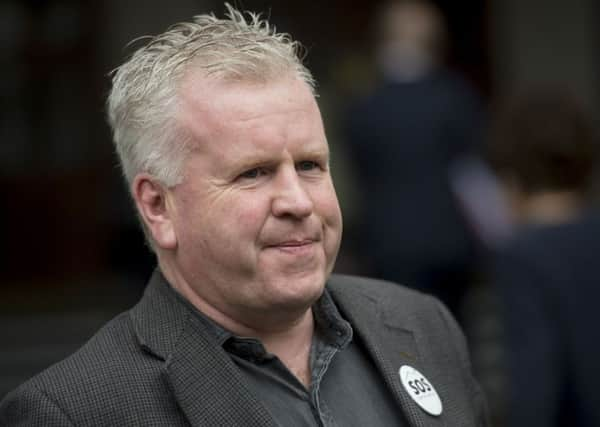Man loses bid to challenge '˜unlawful' Government-DUP deal


Two judges rejected an application made on Thursday by Ciaran McClean to bring a judicial review of the legality of the £1 billion deal.
Co Tyrone father-of-three and mental health worker Mr McClean, an unsuccessful Westminster candidate for the Green Party NI in the general election, accuses the Government of “buying DUP votes” to hold on to power.
Advertisement
Hide AdAdvertisement
Hide AdMr McClean, who has raised thousands by crowdfunding for the legal action, was in court to hear Lord Justice Sales, sitting with Mr Justice Lewis, rule against him.
Lord Justice Sales said neither of the two grounds relied on by Mr McClean in his application was “properly arguable in a court of law”.
He added: “Permission to apply for judicial review should be refused.”
Mr McClean, who pursued the legal action as a private individual and not in conjunction with the Green Party, claimed the agreement breached the Bribery Act 2010 and described it as a “corrupt bargain”.
Advertisement
Hide AdAdvertisement
Hide AdDuring the hearing, his lawyer tried to persuade the two judges that he had an “arguable” case, which should be given a full airing in court at a later date.
Dominic Chambers QC told them that under the June 26 agreement the government had “purchased” the political support of the DUP for £1 billion, “and that sum will come from public money”.
He argued the agreement was made for an “unlawful purpose”, and said that it was “on its face unlawful because it makes provision for the expenditure of public funds for party political advantage”.
The application was contested by two defendants, the first secretary of state and the attorney general.
Advertisement
Hide AdAdvertisement
Hide AdTheir QC, James Eadie, submitted in written argument before the judges that the criminal law of bribery “plainly does not apply to a confidence and supply agreement between political parties”.
He stated: “The allegation that the agreement entails public expenditure which is unlawful at common law and/or without parliamentary authority is misconceived in particular because the expenditure contemplated by the agreement will have appropriate parliamentary authorisation.”
The parliamentary deal – branded “shabby and reckless” by Labour – saw the DUP’s 10 MPs agree to support the Conservatives’ minority government in a series of key Westminster votes.
In exchange, Northern Ireland’s largest party secured £1 billion of new Treasury investment in the Province.